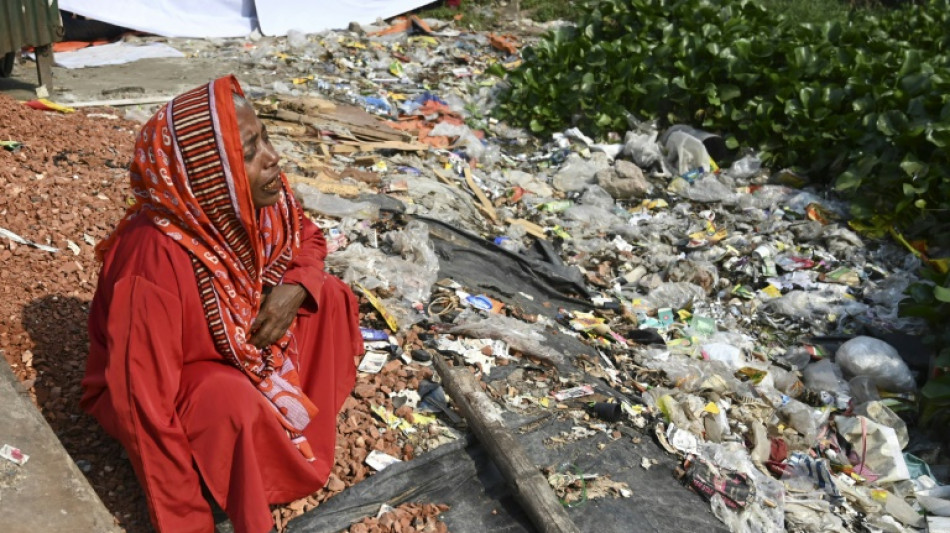
-
 Thai ex-PM leaves country before parliament votes on leadership
Thai ex-PM leaves country before parliament votes on leadership
-
NZ army appeals soldier's 'inadequate' spying sentence

-
 Coalition of willing commits to Ukraine force if peace agreed
Coalition of willing commits to Ukraine force if peace agreed
-
Powerhouse Australia 'up for challenge' of defending Women's World Cup

-
 Argentina's Independiente disqualified from Copa Sudamericana over stadium brawl
Argentina's Independiente disqualified from Copa Sudamericana over stadium brawl
-
Luis Suarez apologizes after Leagues Cup spitting incident

-
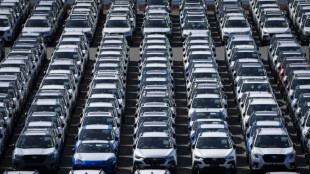 Trump signs order to lower US tariffs on Japan autos to 15%
Trump signs order to lower US tariffs on Japan autos to 15%
-
Germany lose opening World Cup qualifier as Spain cruise

-
 Nagelsmann slams 'lack of emotion' in Germany's loss to Slovakia
Nagelsmann slams 'lack of emotion' in Germany's loss to Slovakia
-
Germany fall 2-0 to Slovakia in World Cup qualifying opener

-
 Cape Verde islanders win to stay on course for World Cup debut
Cape Verde islanders win to stay on course for World Cup debut
-
Breetzke stars as South Africa edge England by five runs for ODI series win

-
 Germany fall 2-0 to Slovakia in 2026 World Cup qualifying opener
Germany fall 2-0 to Slovakia in 2026 World Cup qualifying opener
-
Flamengo's Henrique out for 12 games for alleged match-fixing

-
 Cash on hand to clinch point for Poland against Netherlands
Cash on hand to clinch point for Poland against Netherlands
-
Spain thrash Bulgaria in opening 2026 World Cup qualifier

-
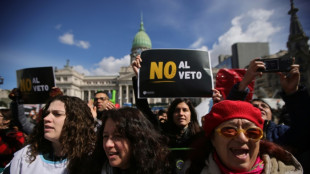 Argentine Congress overturns Milei veto on disability funds
Argentine Congress overturns Milei veto on disability funds
-
Japanese star Oda chasing career Slam at US Open

-
 Djokovic aims to 'mess up' Sinner-Alcaraz plans at US Open
Djokovic aims to 'mess up' Sinner-Alcaraz plans at US Open
-
Trump's Fed pick plans to keep White House job while at central bank

-
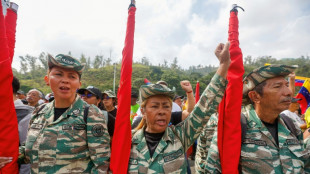 In face of US 'threat,' how does Venezuela's military stack up?
In face of US 'threat,' how does Venezuela's military stack up?
-
Israel military says controls 40 percent of Gaza City
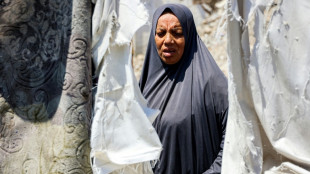
-
 Tennis icon Borg battling cancer says publicity for autobiography
Tennis icon Borg battling cancer says publicity for autobiography
-
Argentina charges Nazi's daughter for concealing decades-old art theft

-
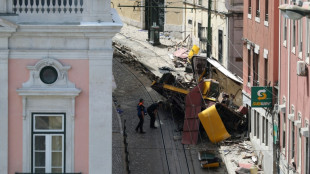 Portugal releases first details of 16 killed in funicular crash
Portugal releases first details of 16 killed in funicular crash
-
US sues power company over deadly Los Angeles wildfire
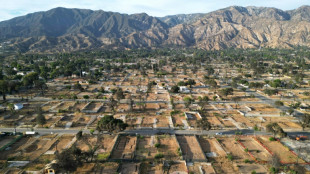
-
 After change of club and Italy coach, fresh beginnings for Donnarumma
After change of club and Italy coach, fresh beginnings for Donnarumma
-
Levy makes shock decision to quit as Spurs chairman

-
 UK court convicts asylum seeker of sexual assault
UK court convicts asylum seeker of sexual assault
-
Fashion, cinema stars hail 'love affair' with Armani

-
 France star Mbappe calls for players to get more time off
France star Mbappe calls for players to get more time off
-
Trump's Fed governor pick vows to uphold central bank independence

-
 Norris brushes off Dutch setback before Italian GP battle with Piastri
Norris brushes off Dutch setback before Italian GP battle with Piastri
-
In-form Breetzke stars as South Africa post 330-8 against England

-
 France says 26 countries commit to Ukraine deployment if peace agreed
France says 26 countries commit to Ukraine deployment if peace agreed
-
White House quietly drops WTO, ILO from foreign aid cut list
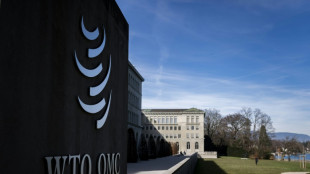
-
 Wales edge Kazakhstan to boost World Cup hopes
Wales edge Kazakhstan to boost World Cup hopes
-
Ayuso sprints to Vuelta stage 12 victory as tensions ease

-
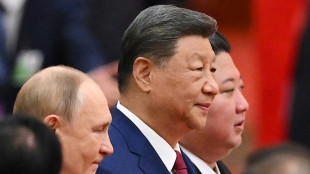 Could humans become immortal, as Putin was heard telling Xi?
Could humans become immortal, as Putin was heard telling Xi?
-
Xi tells Kim North Korea's importance to China 'will not change'
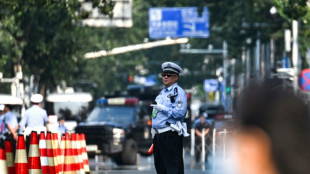
-
 France detains seven over new cryptocurrency kidnapping
France detains seven over new cryptocurrency kidnapping
-
Europe pledges postwar 'reassurance force' for Ukraine: Macron

-
 Hollywood hails Armani, designer to the stars
Hollywood hails Armani, designer to the stars
-
RFK Jr defends health agency shake up, Democrats call for his ouster

-
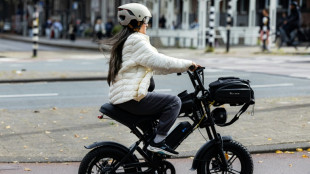 Bike-loving Dutch weigh ban on fat bikes from cycle lanes
Bike-loving Dutch weigh ban on fat bikes from cycle lanes
-
With restraint, Armani stitched billion-dollar fashion empire
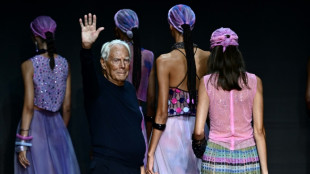
-
 France, Switzerland agree on Rhone, Lake Geneva water management
France, Switzerland agree on Rhone, Lake Geneva water management
-
US trade gap widest in 4 months as imports surged ahead of tariffs
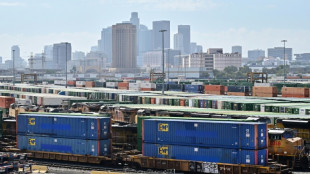
-
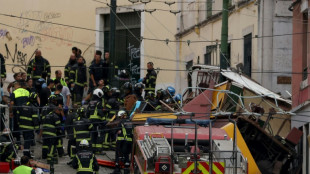 Portugal mourns 16 killed in Lisbon funicular crash
Portugal mourns 16 killed in Lisbon funicular crash
-
Alarm in Germany as 'dangerous' Maddie suspect set to walk


Sweat shops: textile industry's dark side
The deadly consequences of fast fashion were spotlighted a decade ago after 1,138 people were killed when the nine-storey Rana Plaza garment factory collapsed in Bangladesh.
While the tragedy piled pressure on top brands churning out ever-rising mountains of clothes to ensure better standards, abuses in the textile industry continue:
- Factory hellholes -
The collapse of Rana Plaza near the capital Dhaka was the worst in a series of disasters in textile factories in Bangladesh, the world's second-largest garment exporter after China, and other Asian countries.
A year earlier, at least 111 workers were killed in a fire at a textile factory in Dhaka that produced for US retail giant Walmart, among others, and more than 250 workers died in a blaze in a factory in the Pakistani city of Karachi that produced jeans for German discount chain KiK.
The scale of the disaster at Rana Plaza, which produced clothes for Primark and Benetton, among others, proved a turning point.
Under intense scrutiny, top brands, retailers and trade unions agreed to work together to improve safety conditions in Bangladeshi factories.
About 1,820 factories -- accounting for more than 80 percent of exports -- have been inspected since. Most have been declared fully or almost fully safe.
While Bangladesh has had no major textile factory disasters since 2013, such tragedies have continued to occur elsewhere.
Several people have died in fires at illegal garment factories in the Indian capital New Delhi and in Morocco, 28 people died when heavy rain flooded an illegal basement factory in the port city of Tangiers in 2021.
- Forced labour allegations -
China is accused of having interned more than a million Uyghurs, a Muslim minority living in the northwestern Xinjiang region, in political re-education camps and exploiting some of them for forced labour in cotton fields.
Beijing has dismissed the charges, saying it is operating vocational training centres to counter religious extremism.
Global brands including Adidas, Gap, Nike and Puma were drawn into the controversy after it emerged they were using cotton from Xinjiang, which produces a fifth of the world's supply.
In 2021, French magistrates opened an inquiry into claims that four fashion groups, including Uniqlo and the owner of Zara, were complicit in crimes against humanity by profiting from forced labour in Xinjiang.
- Rock-bottom wages -
The meagre salaries of textile workers in the Indian subcontinent are often flagged, but being paid a pittance to deliver fast fashion is an issue in Europe and the United States, too.
In Britain in 2020 for example, investigations by the NGO Labour Behind the Label and several media outlets found textile workers in the central English town of Leicester were sometimes earning as little as two British pounds ($2.63) an hour.
Low wages have sparked protests around the world, notably in Asia.
After years of violent, deadly demonstrations in Cambodia, garment workers finally secured a minimum monthly wage that is higher than most other countries in the region. In 2023, it was set at $200.
- Toxic dumping grounds -
In the era of fast fashion, the average person buys 60 percent more clothing than 15 years ago, while each item is kept for only half as long, according to the UN in 2022.
A throw-away culture generates growing mountains of waste, much of which ends up in mega dumps in the southern hemisphere.
"Every second, the equivalent of one garbage truck of textiles is dumped in a landfill or burned", said the UN.
The Dandora landfill in Nairobi, for example, receives 4,000 tons of rubbish per day, according to Changing Markets Foundation.
- Top polluter -
The textile industry is also a major polluter, causing between two and eight percent of global carbon emissions, according to the UN in 2022.
It is responsible for 25 percent of the pollution of the world's waters and a third of microplastic discharges into the oceans -- a toxic substance for fish as well as humans.
L.Dubois--BTB

